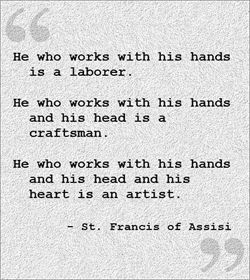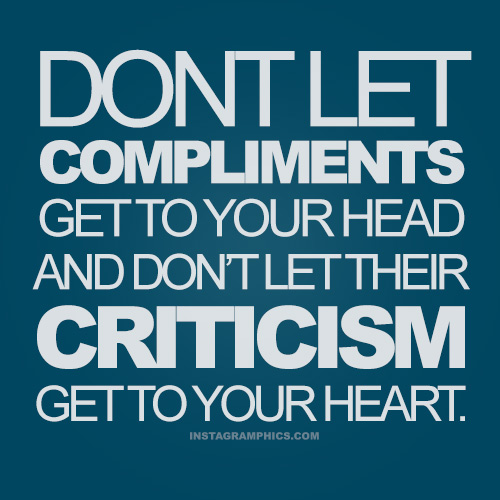Over the years I have found myself surrounded with creative/artist types. Regardless of my job, or where I am living I eventually find myself amongst creatives. I guess there’s some validity to the adage about like-minded people being drawn to each other. Some of these people use hobbies for their creative outlets, and others have taken their creative endeavors and turned them into careers. That doesn’t necessarily mean that the hobbyists are less talented. In fact, there are a couple of hobbyists I know that fully have the potential of being a professional artist. At least from the stand point of the quality of their work. Which begs the question, what is the main difference between a hobbyist and a professional?
For whatever reason, this has been on my mind a lot lately, and I think I’ve come up with an answer. Follow through. Professionals got to where they are because they had follow through. I know that this is an incredibly complex question, but I really do think that it can be summed up to that answer. Follow through. However, this seemingly simple answer has a lot riding behind it. It means that you are not only willing to devote time to your work, but also to finding out what is standard in your industry. To finding out what is expected of professionals and taking whatever steps are necessary to make sure that you fit that criteria. It’s about networking and building relationships with people. It’s about putting yourself out there, which of course opens you up to criticism. Therefore, it is also about learning how to take and grow from criticism, instead of breaking and shrinking from criticism.
To a certain degree, that may be the biggest aspect of follow through. Learning how to receive criticism and move on unscathed. That is of course the ideal, I don’t know if it is actually possible to ever move on unscathed. Perhaps the goal should be to move on stronger instead of unscathed. Because when it comes down to it; that is what criticism should do for you. It should make you stronger. Praise will help your self-confidence but it won’t do anything for your work. To improve your work you need someone to point out the flaws, the cracks in the façade, the places where it doesn’t make sense. After all, if you don’t know where it’s weak, how can you fix it?
I would love to say that I am brilliant, calm and cool while taking criticism. That would be a lie. I am pretty good though. However, every now and then I start to get all bristly and defensive and I have to remember to take a deep breath and stop. Bristly and defensive isn’t productive for anyone involved. Neither are hurt feelings. I have had people ask what I thought and then wind up with hurt feelings when I gave my honest opinion. Guess what? I’m never giving feedback to that person ever again! Disclaimer – I did work as a theater critic for four years, so I have honed my critical eye to a fine point, so to say. Therefore, when someone asks for a critique from me, I let them know my background and what to expect. Only after they’ve acknowledged and accepted this will I give my full opinion. Otherwise I smile and genuinely tell them good job.
That being said, probably my greatest asset in becoming comfortable with criticism myself, was by working as a theater critic. Over my years of critiquing plays, two things became blaringly obvious to me.
- A critique is simply one person’s opinion. True, sometimes a group of people have the same opinion, and true, some opinions will be worth more than others. However, at the end of the day it is still an opinion, and chances are if you look, you can find someone with an opposite opinion. So take it for what it is. If it helps you, great. If it doesn’t, move on.
- Critiques are not personal. In the four years and hundreds of plays that I saw, at no point did I ever think, “Wow, that’s a horrible person who did this piece. They really suck!” Not once. Why? Because I didn’t personally know any of those people. I can guarantee that I gave rave reviews to raging assholes and panned shows done by some of the kindest and most wonderful people out there. And I can guarantee that the opposite happened. How do I know this? Because horrible people can do good work, good people can do bad work and vice-versa. They are not mutually exclusive. In fact, they’re not even related. Therefore, while your work may feel like the most personal thing you can possibly release out into the world, it only is to you. To everyone else, it is simply a piece of work, and that is where the criticism is coming from. It’s not personal.
I don’t know why this has been on my mind so much recently, but there you have it. Thanks for letting me brain dump. Follow through. Focus on following through.



